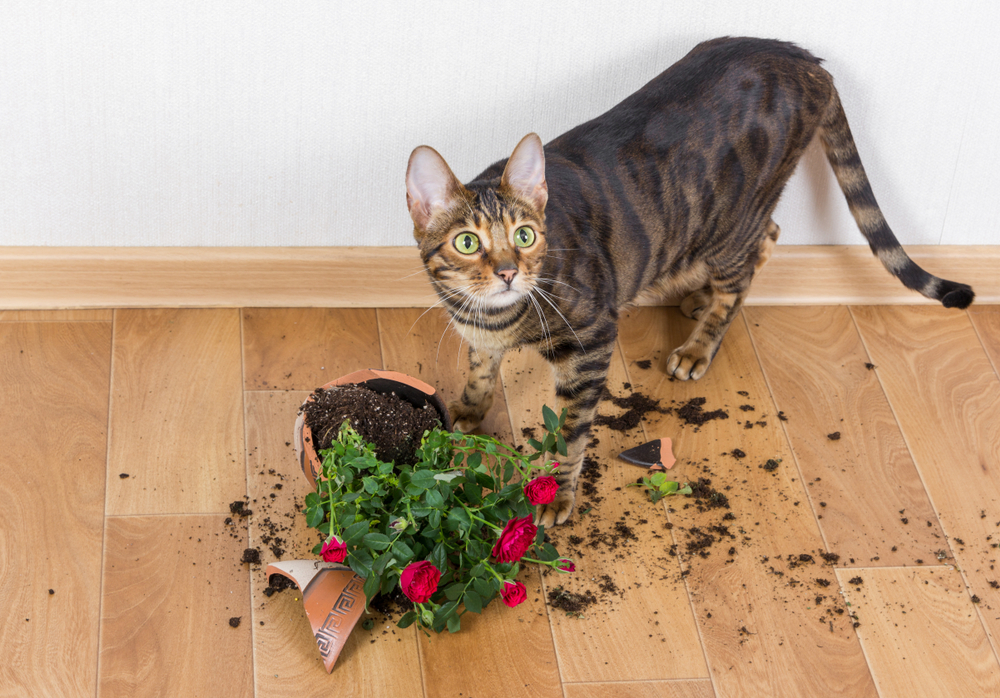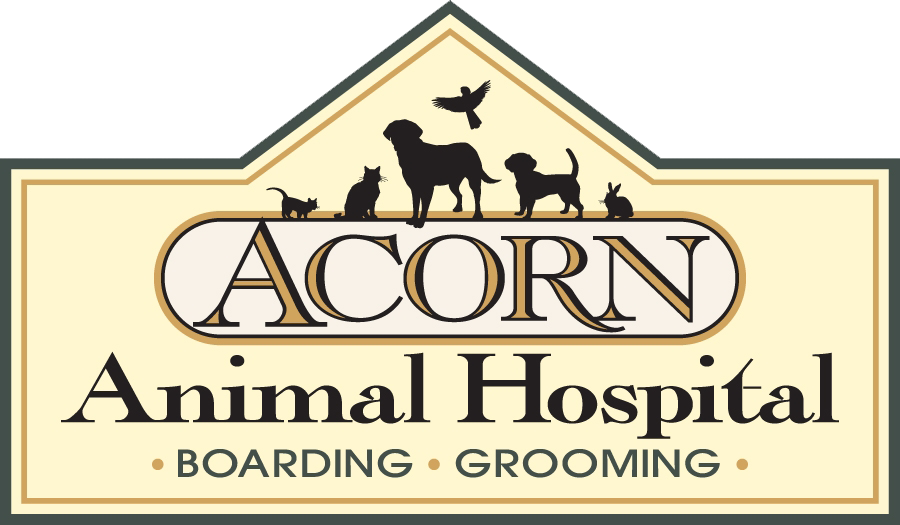Although you’re spending more time at home in the midst of the COVID-19 pandemic and subsequent quarantine, you’re likely still busy, whether working remotely and participating in conference calls, struggling with teaching your children math and science, or trying to finally complete that home improvement project. Your pet is no doubt overjoyed that her family is home all day, but since you’re probably juggling many activities, on top of worrying about the health of your family and friends, your attention may be stretched too thin, posing a potential hazard to your furry companion.
Common in-home hazards for pets during the coronavirus quarantine
With the additional activities at home, your pet has a greater chance of getting into mischief with hazards you haven’t considered. To keep your pet safe, and conserve precious medical resources in such a time of crisis, take steps to use special care in the following areas:
- Kids’ playroom — Your children’s playroom is a source of many hazards for pets in normal times, since kids aren’t always the best at cleaning up all their tiny toys. In addition to the potential choking and obstruction risks associated with small toys, you will likely be encouraging many messy activities in the playroom. On top of home-schooling, you will need to entertain your children so you can accomplish your own tasks, which may mean the playroom explodes with glue, slime, Play Doh, kinetic sand, and many more potentially hazardous items. If your children are working on their daily art project, or playing with items that inquisitive pets could easily swallow, shut your furry pal out of their room until it is clean enough to be stamped with mom’s seal of approval.
- In the kitchen — During the COVID-19 quarantine, you’ve been amazed at how much food your children can put away. They seem to snack every 15 minutes, so somebody is always in the kitchen, baking, cooking, or generally leaving a mess. Many people are less active when shut at home, so they may be trying to limit sugar and carb intake, switching to healthier baking and snacking alternatives. If you swap out regular sugar for xylitol, be extremely careful with this sweetener around your dog, as it can rapidly cause a dangerous drop in blood sugar, and liver failure. When creating a healthy fresh fruit or trail mix snack, also watch the grapes and raisins around your dog, as a few of these fruits can lead to kidney failure. To occupy your children, and dish up a delicious dinner at the same time, you may turn to homemade pizzas—after all, the frozen pizza section was cleaned out at your local grocery store. But, when making pizza dough, or other foods that require yeast, take caution around your pet. Uncooked dough can ferment in your pet’s stomach, causing alcohol toxicity, and a potential obstruction, as the dough rises. To be safe, don’t let your pet stay underfoot while baking, cooking, and snacking in the kitchen.
- In the garage — Since you’re forced to be at home, are you finally tackling those home improvement chores that have long been on your list? If you are turning your garage into construction central, littered with paint, cleaning products, Gorilla Glue, nails and screws, and an assortment of power tools, take care, because all these items can pose a threat to an unwary pet, especially when the owner is preoccupied. When working on home improvement projects, confine your pet to a different section of your home, with a food puzzle, or long-lasting treat, or send her outside to play with the kids. If your pet does lap up a puddle of spilled paint, or chews on your Gorilla Glue container, contact an animal poison hotline first for the best instructions on how to care for your pet, and then call our hospital.

- In the yard — Since the COVID-19 pandemic hit the U.S. during early spring, it’s an excellent time to tackle yard work while under quarantine. When breaking last year’s fertilizers and herbicides out of storage, check the instructions for safe use around pets. Your pet likely will need to stay inside while you are using chemicals outdoors, and to stay off treated areas for a certain period of time. Other potential yard hazards include cocoa mulch, certain plants, and compost piles. If your kind neighbor drops off a few plants at your doorstep, ensure they are not included on the ASPCA’s list of plants toxic to pets.
We understand that fully focusing on your pet in the midst of the coronavirus pandemic can be difficult. Since you know that pets do not become ill from the virus, or serve as an infection source to people, you may switch the bulk of your attention to caring for your human family members instead, to ensure they remain healthy and protected from the COVID-19 threat. With your attention torn, and when you are under a great deal of stress, accidents can happen, and your pet may scarf down your child’s craft project, or eat her trail mix packed full of chocolate and raisins.
We hope you do not have to deal with an emergency situation, but if a problem arises, call us—we are still open during normal business hours to care for your beloved companion.
